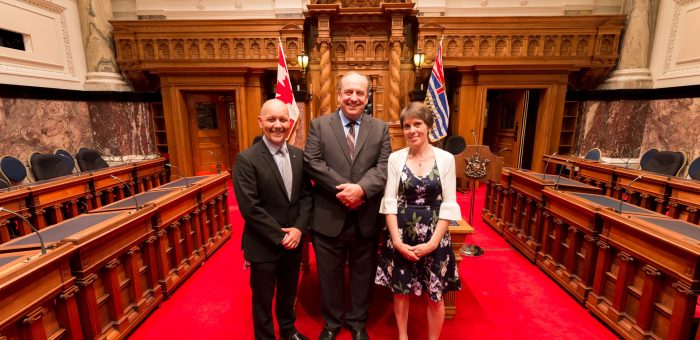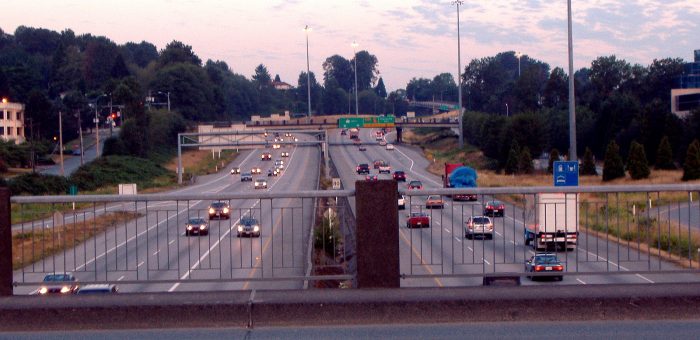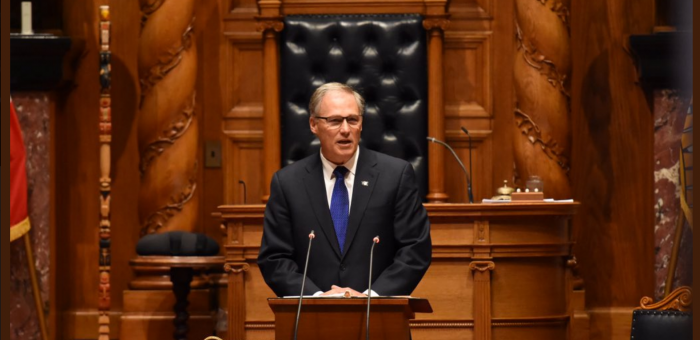Issues & Community Blog - Andrew Weaver: A Climate for Hope - Page 73
BC Greens send letter to BC Liberal caucus requesting better cooperation on amendments
Yesterday my caucus colleagues and I sent a letter to BC Liberal House Leader Mike de Jong concerning our desire to collaborate with the BC liberals on improving legislation.
The reason why we felt it was important to do so is that we have been blindsided by several amendments that the BC Liberals have brought forward at the last minute. It is very difficult to support amendments tabled this way as they have not gone through legislative drafters, and advance notice on the order papers has not been given to allow for thoughtful reflection upon, and stakeholder engagement in, the substance of the amendments.
In addition, this past session the BC NDP granted both the BC Liberals and the BC Greens access to legislative drafters. This good faith approach to doing politics differently was very much appreciated by our caucus and we have taken advantage of this new opportunity.
The most recent example of a BC Liberal amendment, whose intent is something we could support, but as written could not be supported, concerns changes to Bill 15: Local Elections Campaign Financing Amendment Act. It was clear from the debates that all parties agreed on the substance of what the amendment was trying to do. It was designed to allow candidates in self-funded local election campaigns to contribute an additional $1,200 (above the present $1,200 donation limit) to their own campaign. But as written, the amendment didn’t actually do what it was supposed to do.
Below I reproduce the video and text of an exchange I had with the Selina Robinson, the Minister of Municipal Affairs and Housing. During this exchange I ask the Minister to outline the problems with the proposed amendment. I was also able to get on record her commitment to introduce regulations that do precisely what the amendment was trying to accomplish, but didn’t actually accomplish. The regulation will be in place for the 2018 local government elections.
Below I reproduce the video and text of our exchange as well as the text of our letter to the BC Liberal caucus. I also append the very brief media advisory that we issued.
Video of Exchange
Text of Letter
Mike de Jong
House Leader for the Official Opposition
BC Liberal Caucus
Parliament Buildings, Victoria
November 22, 2017
Dear Mr. de Jong,
We are writing to express our Caucus’ desire to collaborate with yours on improving legislation. As you know, advancing good public policy based on evidence is a core goal of our Caucus, as is working across party lines. Our parties have a history of collaboration on this front, working together under your past government to pass vital legislation that requires post-secondary institutions to have sexual violence policies and to improve labour regulations to prevent employers from requiring their employees to wear gender-specific footwear.
We request that when your caucus has amendments to legislation that your Members follow the following two processes so that we can pass the best public policy for our province. First, we request that your Members give adequate notice of amendments by putting them on the order papers in a timely fashion. Even small amendments can have significant and sometimes unanticipated implications. To responsibly consider amendments, our Caucus may need to consult with your caucus, experts, staff and each other. We need to consider the impacts on our constituents and on existing policy as well as whether the proposed amendment is constitutional. For this very same reason, bills are rarely debated the same day they are introduced.
Second, the government has recently made legislative drafters available to opposition members for the first time. As you know from your days in government, it is imperative that new laws be crafted in accordance with proper legal language and in consideration of existing statutes and amendments. We therefore request that your Caucus take advantage of the legislative drafters so that we can be assured that any proposed amendments are legally sound.
Yesterday, during our debate over Todd Stone’s amendment to Bill 15, we raised concerns that the amendment had not been placed on the order papers and had not been written by legislative drafters. Shirley Bond stated that it was improper to focus on process when debating policy. However, we believe that for the reasons discussed above, proper process is indeed a prerequisite for good public policy.
We understand that opposition Members have the right to introduce amendments without following the above processes. However, leaders of both our parties have acknowledged that this minority government is a message from British Columbians that they want us to work together. In order to do so, we must not accept the bare minimum standards that are technically required of us. Instead, it is incumbent upon us as elected representatives to make use of all opportunities available to us to ensure we advance good public policy that is in the best interests of British Columbians.
The agreement we signed with the BC NDP is grounded in a relationship of trust and built on a foundation of good faith and no surprises. Our approach has been to work with your caucus from this same foundation. We hope you will see this as a reasonable request so that we can have a productive working relationship, and so that we can deliver better outcomes for the people we represent.
Sincerely,
Andrew Weaver Sonia Furstenau Adam Olsen
Leader House Leader Caucus Chair and Whip
B.C. Green Caucus B.C. Green Caucus B.C. Green Caucus
Cc. Rich Coleman, Interim Leader, B.C. Liberal Caucus
Media Advisory
Advisory: B.C. Greens letter to B.C. Liberal caucus requesting better cooperation on amendments
For immediate release
November 22, 2017
VICTORIA, B.C. – The B.C. Green caucus has sent a letter to the B.C. Liberal caucus requesting better cooperation on amendments.
The full letter is attached and can be read here.
-30-
Media contact
Jillian Oliver, Press Secretary
+1 778-650-0597 | jillian.oliver@leg.bc.ca
Text of Exchange
A. Weaver: I have a number of questions for the minister as we discuss this amendment further. My first question is that two days ago, when the minister was responding to — I forget — one of the members, he or she mentioned that she saw some constitutional issues or challenges with the amendment as put forward. I was wondering if she might articulate those to us.
Hon. S. Robinson: I wanted to let the member know that we were concerned about some potential issues. So I’ve had a chance to get some legal counsel on this. Some of the concerns include the effect of the amendment as drafted is different than what we understand the amendment to be. So based on legal review, the effect of this amendment is that once a candidate makes a contribution of any amount to their own campaign then the contribution limit for that candidate’s campaign is $2,400, regardless of who is making the contribution to that candidate. This rule does not limit the $2,400 to an amount that a candidate could provide to their own campaign. It means that any individual can provide up to $2,400 to the candidates campaign. It misses the mark there.
There are also some potential legal questions that have been identified. A significant question is whether it would be justifiable and fair that candidates in the same communities are receiving different treatment on an arbitrary basis. For example, an unendorsed candidate who contributes money to their own campaign has a higher contribution limit of $2,400 while other unendorsed candidates who do not contribute to their campaign have a contribution of $1,200. Because of this question, legal advice would be required.
Another question is whether this amendment could be viewed as limiting speech in elections by prohibiting candidates from receiving contributions in certain circumstances. There’s also lack of clarity. So for example, what would a candidate do if they ended up spending $1,200 but also received campaign contributions? Would they be required to return the contributions?
The proposed amendment also does not identify the consequences of contravening this rule.
So the provision really doesn’t fit within the legislative framework. It amends section 30.01 but does not account for necessary consequential amendments for other sections — or for elections after the 2018 general local elections, if that was the intention.
So for these reasons alone, we can’t support the amendment.
A. Weaver: Thank you to the minister for her response there.
I’d like to see if I can understand where we are today. So two days ago, we had the motion brought forward by the member from Kamloops–North Thompson, a motion that initially had something to the tune of $5,000 as a potential for a self-funded campaign.
We discussed this. Obviously, there were some communication issues as to what was being debated when, and we saw this motion, literally, as we were sitting here, and had to work on the fly. There were some discussions — and with great respect and thanks, the member for Kamloops–North Thompson…. South Thompson. I do apologize. The member for Kamloops–South Thompson. It is true that they tend to sing as one voice. They clearly — North and South Thompson — support each other, and it’s good to see that in the Legislature.
Interjection.
A. Weaver: As my friend from Saanich North and the Islands says: “the Loops.” The Loopsians are very supportive here.
Coming back then. So it was modified to reflect what we were hearing here — that we didn’t know where the number was coming from. And we agreed that $2,400 was a number that seemed a little more reasonable. We clearly…. We had some support here. Not everyone in our caucus, but we felt that there was a lot of support emerging into the spirit and concept of this.
We then had a day break and had some time to reflect upon the amendment that was brought forward to us, as the minister was out of town, in Vancouver with the housing announcement, with the Prime Minister, so was unable to attend committee stage at that time.
And after some reflection, we’re now back to a position where we have the amendment on the floor. The amendment is to allow self-funded campaigns to $2,400 — or at least that’s the intent of the amendment. And I’m grateful for the clarification that the minister has, in terms of some of the issues with the amendment as written and what interpretations could be.
So my final question on this, before I decide the direction I’d like to take in terms of my vote. My understanding is the minister has formally committed to introduce regulation that captures the spirit of the intent, because she, too, has heard — like our caucus has, and members opposite had — some concern about the ability of people in, particularly, rural areas, small regions, to self-fund their campaign and not be put at a disadvantage.
A lovely example of this was mentioned by the member for Abbotsford-Mission, who somehow was being used as an example to actually argue against limiting donations, when he’s the most beautiful example of actually supporting limiting donations, because, in his case, he never funded his campaigns.
My final point then is: is it correct that the minister has committed to introduce such regulations that haven’t captured the spirit of the discussion? So that the 2018 local government elections will be subject to some regulation that will allow for increased funding by yourself to your own campaign. And that we recognize that, after that election, everything will be looked at, and there will be some reflection, using the data to move forward, as we revise legislation or regulations in the months and years ahead?
Hon. S. Robinson: I appreciate the question. And certainly, I’ve heard from UBCM, and I’ve heard from candidates, and we’ve certainly heard in this House about the self-funding piece, particularly for smaller communities.
I think it’s really important, and what I indicated is, that we do understand where members of this House are going and what it is they’re seeking. And in taking this approach, I think it’s important that we do make sure that regulation fits within the legal framework of the legislation and that we avoid the legal question marks that were raised by the amendment proposed by the member opposite.
So taking all things into consideration, we need to make sure that a regulation needs to fit the importance of monitoring the 2018 local elections, to gather information about the nature and extent of self-funded campaigns — not just on the contribution side, but on the expense side. This is the first time we’re doing that. I know that the members down the way really appreciate having good data, so it’ll be the first time that we’ll actually have this data, which will allow us to reflect on all of these components for local elections.
With all of that in mind, my intention will be to recommend a regulation that provides for candidates to make an additional campaign contribution of up to $1,200 in 2018 to their own campaign, with that being in addition to the regular contribution limit of $1,200, bringing the total in those circumstances to $2,400 for 2018. It provides for some equivalent authority for candidates endorsed by an elector organization, while ensuring that the total additional amount that is provided to an elector organization’s campaign through its endorsed candidates could not be more than $1,200 — again, for a total of $2,400 in 2018 in those circumstances.
What this will do, hon. Member, is that it will allow us to adjust to what we’ve been hearing, and it will allow us to do a number of things afterwards, to take a look at all the data to make sure that it’s hitting the mark. If it’s not hitting the mark, if that needs to be increased because we get feedback that that wasn’t quite enough, we can readily do that. Or if we learn that that was too much, then we can scale that back.
The other thing it does — and I think it’s really important — is that it allows to us be nimble. Government is not very nimble, generally speaking. So having it in regulation, should there be a by-election and we need to act appropriately and quickly, we can do that. I want to assure the member down the way that that is my intention.
A. Weaver: Thank you to the minister for the detailed response, and thank you to the member for Kamloops–South Thompson, who has brought this issue to this debate here. I am seeing here an agreement coming across party lines on this very important issue. Again, thank you to the member for Kamloops–South Thompson and thank you to the minister for responding in such an informative way.
Announcement that ride-hailing will go to an all-party committee
Today I issued a media release noting that government will be introducing a debatable motion next week to move the issue of ride-hailing to an all-party committee. As noted in the release, reproduced below, the committee, comprises MLAs from all three parties, will engage with expert witnesses, debate the issue and produce a report to be released by February 15, 2018. The intention is to inform the development of subsequent ride-hailing legislation that will be brought forward next year.
This an exciting development for the BC Greens. I have thrice (twice under the BC Liberals and once under the BC NDP) introduced a private members bill designed to create the regulatory environment that would enable ridesharing in BC (it is already occurring but in an unregulated fashion). It looks like we are finally moving forward in a tripartisan fashion.
Media Release
Weaver announces that ride-hailing will go to all-party committee
For immediate release
November 23, 2017
VICTORIA, B.C. – Andrew Weaver, leader of the B.C. Green Party, announced today that ride-hailing will go to an all-party committee of MLAs. For several weeks the B.C. Greens have been working with the B.C. NDP to develop an approach that would allow important questions related to ride-hailing to be canvassed. The committee, comprised of MLAs from all three parties, will engage with expert witnesses, debate the issue and produce a report to be released by February 15, 2018 intended to inform subsequent ride-hailing legislation next year.
“I am delighted that this issue will finally be addressed in a collaborative fashion by all three parties,” Weaver said.
“The committee’s report will tackle key questions not addressed in the terms of reference created by the government for their review of the taxi industry. We will consider important issues like insurance, public safety and the impact of ride-hailing on different communities and municipalities across the province.
“It has been six years since ride-hailing companies first attempted to enter the B.C. market. All three parties have now agreed that we need to bring this technology to B.C. in a regulated fashion. My goal with this committee is to make this the last holiday season in which British Columbians are faced with fewer transportation options than every other major city in North America.”
Weaver introduced a Private Member’s Bill to enable ride-hailing in B.C. for the third time in October. In-mid October the B.C. NDP announced they had hired Dan Hara to conduct a review of the taxi industry, however, the terms of reference did not explicitly include ride-hailing.
-30-
Media contact
Jillian Oliver, Press Secretary
+1 778-650-0597 | jillian.oliver@leg.bc.ca
Final hurdle towards banning big money in BC Politics cleared
Today in the legislature we passed Bill 3 – Election Amendment Act, 2017 which ends the wild west era of big money in BC politics. This is a major success for the BC Green Party as we campaigned extensively on this during the last provincial election. A number of our amendments were also included in the final legislation.
Below is the media release that we issued after the bill passed.
Media Release
Final hurdle towards banning big money cleared
For immediate release
November 22, 2017
VICTORIA, B.C. – The Election Amendment Act, which bans corporate, union and out-of-province donations in British Columbia’s electoral system, as well as limits the amount of money individuals can contribute, has passed third reading, the final political hurdle before becoming law. The B.C. Greens consulted extensively with the government in the development of the legislation, and introduced several amendments in order to increase transparency, reduce the influence of big money already in the system and make the legislation more equitable for small parties.
“I am absolutely thrilled that we have finally taken this significant step towards to putting people back at the centre of B.C. politics,” said Weaver.
“This legislation means that votes cast by the citizens of this province, not cash from special interests, is what will drive our political system going forward.
“The B.C. Greens banned corporate and union donations to our own party in September 2016 because we recognized the importance of this issue for strengthening our democracy. Less than a year ago, B.C. was being internationally derided as the ‘wild west’ of politics due to our lax campaign finance laws. This monumental achievement demonstrates what we can accomplish when we work together to advance good public policy.”
Adam Olsen, Party spokesperson for campaign finance, noted that the legislation will improve trust in government.
“For far too long, the influence of big money in our politics has corroded British Columbians’ trust in their government,” said Olsen.
“A healthy democracy is one where citizens trust their elected officials to put their interests first and foremost. With millions of our dollars flowing to political parties every year, British Columbians were often left wondering what was truly behind government decision-making. The B.C Greens will continue to push for changes, such greater reforms to B.C.’s lobbying industry next year, which will continue to build trust between British Columbians and their leaders.”
-30-
Media contact
Jillian Oliver, Press Secretary
+1 778-650-0597 | jillian.oliver@leg.bc.ca
Bringing the warning from the world’s scientists to the BC Legislature
On November 13, 2017 a second world scientists’ warning to humanity was published in Oxford University Press’s prestigious journal Bioscience. Signed by 15,364 scientists from 184 countries, this warning concluded:
“To prevent widespread misery and catastrophic biodiversity loss, humanity must practice a more environmentally sustainable alternative to business as usual. Soon it will be too late to shift our course away from our failing trajectory, and time is running out. We must recognize in our day-to-day lives and in our governing institutions that earth, with all its life, is our only home.”
This message came 25 years after a similar message was delivered by 1,575 pre-eminent scientists in 1992.
What’s remarkable is that the support for the second warning continues to grow and it has strong support from the British Columbia scientific community. For example, of the 15,364 initial signatories, 40 were from the University of Victoria and 61 from the University of British Columbia. 554 scientists from Canada signed the initial warning and this number has grown to 994 since the letter was published.
Anyone who has watched the documentary Running on Climate knows that I take the warning very seriously. It was the reason that I ran with the BC Greens in 2013.
Today in the legislature I rose during Members’ Statements to bring the message of these scientists directly to the BC Legislature.
Below I reproduce the video and text of my delivery. I also append the accompanying media release.
Video of Statement
Text of Statement
A. Weaver: In 1992, Dr. Henry Kendall, a Nobel laureate in physics, organized a statement signed by 1,575 pre-eminent scientists that was sent to government leaders of all nations. The statement warned:
“Human beings in the natural world are on a collision course. Human activities inflict harsh and often irreversible damage on the environment and on critical resources. If not checked, many of our current practices put at serious risk the future that we may wish for human society and the plant and the animal kingdoms and may so alter the living world that it will be unable to sustain life in the manner that we know. Fundamental changes are urgent if we are to avoid the collision our present course will bring about.“
Twenty-five years later, a second warning, now signed by 15,364 scientists from 184 countries was issued. Published last week in Oxford University Press’s prestigious journal Bioscience, this warning concluded:
“To prevent widespread misery and catastrophic biodiversity loss, humanity must practice a more environmentally sustainable alternative to business as usual. Soon it will be too late to shift our course away from our failing trajectory, and time is running out. We must recognize in our day-to-day lives and in our governing institutions that earth, with all its life, is our only home.”
The warning quantitatively analyzed the nine environmental issues identified in 1992, and they show that in all cases but one, conditions have actually gotten worse and, in most cases, dramatically so.
Yet that one success story offers us so much hope. In 1987, the Montreal protocol was finalized. All 197 countries in the UN have ratified this protocol, and it has led to a dramatic reduction in substances that deplete the ozone layer. And 170 of these 197 countries have already ratified the Paris climate agreement, which formed the basis of discussions earlier this month at the 23rd Conference of the Parties to the UN framework convention on climate change.
Let us collectively reflect upon the warnings of the world’s scientists, as well as the words of the Gov. Jay Inslee, who addressed the Legislature yesterday. In reference to tackling climate change, he noted:
“This is one of the greatest challenges of our time. If we are remembered for anything 100 years from now, this is what we will be judged on. It is time for us rise to that challenge.“
Media Release
Weaver delivers warning from 15,364 scientists to the B.C. Legislature
For immediate release
November 22, 2017
VICTORIA, B.C. – Andrew Weaver, leader of the B.C. Green Party, read a warning from a letter signed by from 15,364 scientists in 184 countries to the B.C. Legislature. The Letter, published last week by the Alliance of World Scientists and entitled “World Scientists’ Warning to Humanity: a second notice,” warns world leaders that there needs to be change in order to save the earth.
“As leaders, we have a responsibility to younger generations to ensure that our actions today do not leave them worse off than we are,” said Weaver.
“I am proud to deliver this message to the B.C. legislature so that we may be reminded of this responsibility and take urgent action to address climate change. B.C. has a history of leadership in climate action. I am proud that our Agreement with the B.C. NDP has once again moved us in this direction, but there remains much work to be done.
“B.C. has a highly educated workforce, abundant natural resources and is one of the most beautiful places in the world to live. If we have the courage to champion a bold vision, we can ensure that B.C. is a leader not only in climate action, but also in the low-carbon economy that is emerging as world leaders step up to reduce emissions.”
The letter states that in order “to prevent widespread misery and catastrophic biodiversity loss, humanity must practice a more environmentally sustainable alternative to business as usual…Soon it will be too late to shift course away from our failing trajectory, and time is running out.”
The warning comes 25 years after Dr. Henry Kendall, a Nobel Laureate and former Chairperson of the Union of Concerned Scientists, organized a similar statement signed by 1,500 scientists in 1992.
Weaver is a renowned climate scientist who prior to his election in 2013 served as Canada Research Chair in climate modelling and analysis in the School of Earth and Ocean Sciences at the University of Victoria. He was a Lead Author on the 2nd, 3rd, 4th and 5th Intergovernmental Panel on Climate Change’s scientific assessments and has authored or coauthored over 200 peer-reviewed, scientific papers and was the Chief Editor of the Journal of Climate from 2005-2009.
-30-
Media contact
Jillian Oliver, Press Secretary
+1 778-650-0597 | jillian.oliver@leg.bc.ca
Washington Governor Jay Inslee addresses the BC Legislature
Washington State Governor Jay Inslee addressed the BC Legislature today. He offered an inspirational message of how Washington is positioning itself as a leader in the emerging 21st century economy, while at the same time taking steps to aggressively reduce greenhouse gas emissions. As leader of the third party, I was entitled to deliver a brief response.
Below I reproduce the text and video of my response. I also include the video of the Governor’s speech, followed by the videos of the responses by the Premier and the Leader of the Official Opposition.
Text of my response
A. Weaver: Thank you, Governor Inslee. We’re honoured to have you address the B.C. Legislature today.
My colleagues in the B.C. Green Party and I greatly appreciate your thoughtful words and, in particular, we greatly appreciate your continued climate leadership south of the border.
You know, we know how challenging and, frankly, at times frustrating it can be to work on this issue amongst those vested in the status quo, unable to recognize the economic opportunities that are presenting themselves. We commend your leadership and your perseverance on this file.
Our jurisdictions share a wealth of renewable natural resources that position us uniquely qualified to rise to the challenges climate change will bring. And we possess, as you note, the natural beauty that allows us to attract the best and brightest in the world, by offering them the greatest place in the world to live.
As governor, you’ve recognized this. By already working to attract and expand carbon fibre manufacturing at Moses Lake in rural Washington, by bringing this energy intensive manufacturing facility for BMW’s i-series electric vehicles close to the production of cheap renewable energy, Washington is capitalizing on the emerging 21st century economy. And what’s more, at the same time, you’re reducing transmission line energy loss.
Your government is illustrating that acting on climate change drives innovation, jobs and prosperity for all. With an economy that grew 2½ times the national rate last year, Washington was named the number one place in America to do business in 2017.
This was achieved while simultaneously demonstrating international leadership on the biggest challenge facing humanity.
I hope your demonstrated success reassures British Columbians, as we make bold choices of our own in the years ahead. Not only is it possible for governments to drastically reduce carbon emissions, but doing so spawns innovation, economic growth and job creation.
Finally, when reviewing your book, Apollo’s Fire: Igniting America’s Clean Energy Economy, I was reminded of president John F. Kennedy’s quote that I often use when talking about climate change.
In 1962, when President Kennedy announced that America would send a man to the moon by the end of the decade, he said this: “We must be bold.” He further said:
“We choose to go to the moon in this decade, not because it’s easy, but because it’s hard, because that goal will serve to organize and measure the best of our energies and skills, because the challenge is one that we are willing to accept, one we are unwilling to postpone, and one we intend to win.“
The time to be bold is upon us.
With that, I thank you for giving us so much to aspire to.








